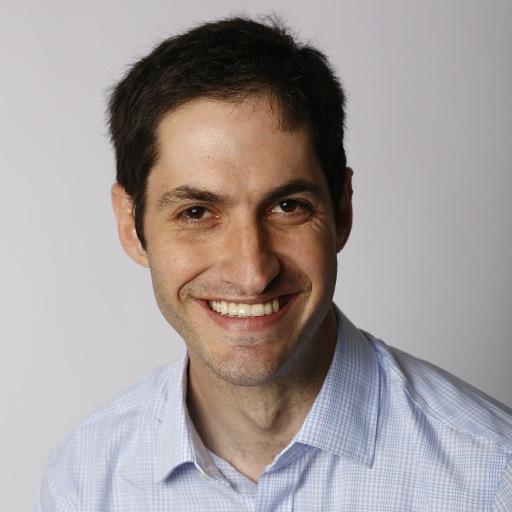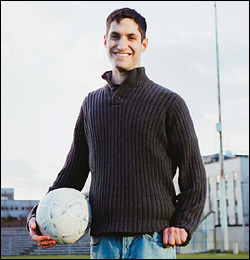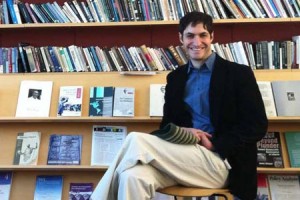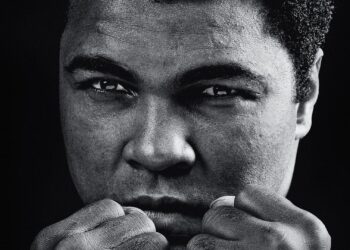By: Zachary Draves
As the Paralympics come to a close in Tokyo, I thought it would be a good time to remember a Paralympics pioneer who made a name for himself 25 years ago in Atlanta and has become a formidable advocate for disability rights in sports.
Eli Wolff overcame a stroke at the age of two that left him paralyzed to become a soccer player for Team USA during the 1996 Paralympics in Atlanta.

(Courtesy: Brown University)
His experience on the world stage came at a time when attention was being paid more to the Paralympics and that trend is continuing on a steady growth.
After another Paralympic experience in 2004 in Athens, Eli has taken his role as an advocate for sport and social justice very seriously.
Currently, he directs the Power of Sport Lab, an innovative platform that advances the cause of diversity and leadership through sport, and teaches in the Sport Management program at the University of Connecticut.

(Courtesy: Barbara Matson)
He co-founded the Sport and Society initiative at Brown University.
Eli has also co-founded Disability in Sport International, Athletes for Human Rights, the Olympism Project, and Mentoring for Change.
Much of his work is centered on policy development as it relates to sports, human rights, and social change.
He is a regular coordinator of Athletes and Social Change with the Muhammad Ali Center in Louisville.
During the course of the Tokyo Olympics, he helped to spearhead a letter sent to the IOC with over 250 signatures calling for the amending of Rule 50 that prohibits political protest by athletes during the games of which I had the honor of signing onto.
I had the chance to talk to Eli about his experience in Atlanta in 1996 and how much that played a role in his future career as a scholar and advocate.
Tell me what was your experience like in Atlanta in 1996?
It was my first time and I was pretty young at 19 years old. I had just gotten myself involved a couple of years before on the US national team. It was all new to me and it was an exciting opportunity to be there in the stadium. I had these dreams at a younger age of living the Olympic/Paralympic experience but I didn’t really know what that meant and if that was a potential thing for me. In high school was when I started learning about the Paralympics and then I went to my first national team camps and Pan American Games. Going into the Paralympics, the Paralympians went to DC on the way to Atlanta where. The Olympians were in DC for a White House visit after the Olympic Games. and then we came down and because of the soccer team We actually got to spend some time with the Women’s National team and we connected in DC at a combined reception, and a couple of my teammates and I met and interacted with Julie Foudy, Kristine Lilly, Amanda Cromwell, and the whole team. It is kind of funny looking back at that moment when we were all together.
For me, from an athlete’s standpoint, through the opening rounds we did really well and we got to the medal round which was really exciting. We ended up losing the bronze medal game, so that was disappointing, but I think it was great overall. But I think because I was in college at the time and studying sociology, I had begun taking a class on sport in society and I was kind of more in tuned with issues of equity. So that was an early point when I started looking into the disparities and what was being provided to the Olympians and what was given to the Paralympians. Going into the dorm rooms in Atlanta and seeing all the sponsors out of the Olympic Village and they were exiting off when we were coming in and I didn’t know anything about governance at that point, so I really didn’t understand that there were two different organizing committees at the time and all the nuances I just knew there was a difference. But in terms of the athletic side, we beat Brazil and Ireland and we had some big wins and then we got to the medal round we didn’t do as well. Looking back it was a very formative experience for me.
You had mentioned that you were beginning your college years and studying Sociology and you started to pay more attention to the Sociology of Sport, did you think that you would be in the position you are in now?
I knew from taking the class and having this lived experience as a Paralympic athlete and I also had a great experience taking part in the International Olympic Academy in Greece. In college, I did a fellowship and started to take these studies seriously. In my junior year, I got to work with Richard Lapchick when he was up in Boston and I started to conceptualize my projects. Richard had these projects addressing race, gender, and class in sport, but nothing on disability. So it took a couple of years for me and my colleagues to develop the disability in sport project. Over these years I realized that I wanted to not only focus on disability but to expand my work to all areas of social justice. I wanted to have expertise in this area of disability but also wanted to be in the broader area of sport and human rights.
The Atlanta experience for me was really the spark for me to think about how to do more. In Atlanta, I got this idea about this disability in sport project and interviewing different leaders around the country, and from that research and it was really a ripple effect. There were so many great things about this experience but I was also thinking about what I was passionate about after my athletic career and trying to strike a balance but I felt I was at the right place to keep looking forward.
Given your experience in Atlanta to where we are at in 2021, how would you assess the current state of the Paralympics?
I think there has definitely been a lot of incremental progress. Some of the biggest changes in the United States happened in 2019 with the name change so it is now officially the United States Olympic and Paralympic Committee and also the equal pay for medals which is happening for the first time in Tokyo. One of the initiatives I was involved in before the name change was the alumni organization the United States Olympian Alumni Association and there was a group of us working with this organization that suggested instead of making two separate alumni organizations to simply add Paralympians to the Olympian alumni organization. It ended up taking five to six years to make that happen just because of some of the resistance and feeling that this is the Olympian-only group. That was really a precursor to the efforts with the television coverage and sponsors that you are seeing today.
So you are seeing a lot of evolution and growth both nationally and internationally and I think London in 2012 was a big turning point internationally and the last few years have been a turning point in the United States and there are a lot of reasons for that. Paralympians are getting more visible and having more of a voice at the table. Nike, Toyota, and different sponsors coming along and having different Olympians supporting Paralympians and changes in the leadership of the USOPC has helped to make progress much more very proactive.
There are still ways to go and one of the initiatives that I am involved with now is within the whole spectrum of the Olympic Charter. There is Principle 6 and this is about inclusion. In 2014 sexual orientation was added, but right now disability is not included in Principle 6 of the Olympic Charter, and that isn’t just about the Paralympics, Special Olympics, or Deaflympics, but it is also about Olympians with disabilities and administrators, volunteers, and officials with disabilities. I feel like this will happen in the near future where disability will be added to Principle 6, and part of it is that the IOC and United Nations work together and one of the main charters is the UN Disability Convention on the Rights of Persons with Disabilities and so I think it is a matter of time, and while there is no guarantee, on that, there is a growing awareness, and it is not a very controversial thing just to recognize that this population exists. So I think that initiative will continue to grow and there is a lot of continued awareness to see the athletic abilities and not going toward the hyper-inspirational, guilt, feel-bad stories. But I feel there are more initiatives in the works and more progress being made. It is going to be important to see this ongoing progress.


 NFL
NFL




